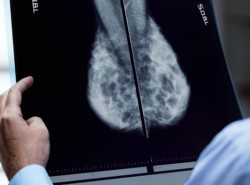
Do circular RNAs (newly discovered molecules) affect breast cancer progression?
Published: 10/9/19 1:48 AM
Gregory Goodall
Our DNA is like a blueprint of biological guidelines for staying alive and functional, but it’s up to RNA to carry out these guidelines, and many RNAs play crucial, active roles in the cell.
Some RNA molecules are involved in switching genes on and off, and others called non-coding RNA are not involved in gene changes but can have other important roles. The number of non-coding RNAs in the human genome is unknown and not much is known about many of them.
Professor Gregory Goodall recently identified an abundant form of non-coding RNA, called Circular RNAs (CircRNA), which are likely to be regulators of cell activities associated with cancer invasion and metastasis i.e. they could play a role in cancer development and progression.
Following on from that initial surprising discovery, he is now conducting one of the first investigations into the role of this novel type of regulatory molecule in breast or any other cancer.
The aim of the study is to substantiate evidence regarding the role of these circular RNA molecules in affecting cancer cell properties, in particular how they influence cancers to progress to an invasive, metastasising form.
This is a new exciting avenue of research that in the long run could lead to discovery of new types of therapeutic target or a diagnostic marker for early stages of metastasis.
More immediately, Professor Goodall hopes his results will stimulate other researchers to join the investigation of cancer roles of these molecules.
